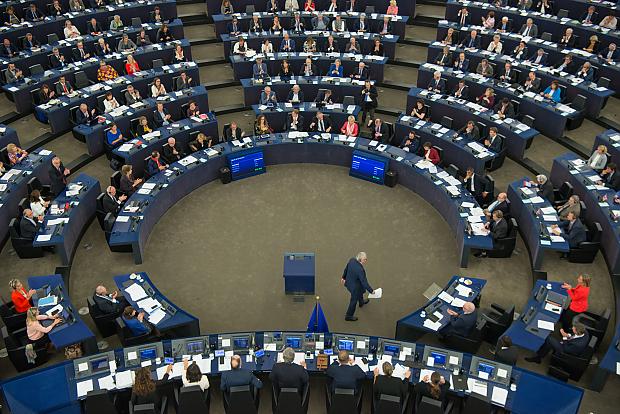Is the EU becoming ‘Social Europe’?
Is the EU becoming ‘Social Europe’?

The Brussels bubble is full of it: the European Union is going to be a social union. It’s clear what the president of the European Commission, Jean-Claude Juncker, wants: power, including over social policy areas. In reality, the Commission’s actual social proposals have little social substance. Juncker proposes, for example, a European Service Card, which would speed up inspections of professional qualifications. This would mean that service providers from low wage countries could operate more easily in other member states. He wants in addition to hand pensions over to the market. Juncker’s social face has to date been notably antisocial.
Last Saturday the SP party council discussed the roots of the tensions afflicting Dutch society. Is this really a question of identity, of religion or of ethnic origin? Journalist Roxane van Iperen doesn’t think so. In her view it’s people’s insecurity, brought about by their uncertainty over basic services, over health care, education and employment. People crave a government which doesn’t promote junk jobs or strip public services to the bone, one which is there for all of us, a government which provides security.
Such a government would, as things stand, run into problems in Brussels. The entire idea of ‘flexible employment’ came from the EU’s notion of ‘flexicurity’, which requires you to stagger from job to job. The exploitation of people from low wage countries is also an EU idea. Former Dutch Commissioner Frits Bolkestein kicked it off. In his view, detached workers (those who work in member states other than their own, but for a company based in their own) must be able to work anywhere in the EU while continuing to pay for and have access to social security and pensions back home, enabling their employers to undercut Dutch competitors, along with those from other high wage countries. Later the EU decided that it was okay to monitor firms for illegal practices, provided this didn’t cause them too much of a burden. And now, if the Commission has its way, the country of origin will issue a ‘services card’, which you must accept as proof that inspections have taken place and proven satisfactory. The Bulgarian plumber or electrician has the correct papers if Bulgaria says so. This certainly won’t lead to a reduction in exploitation or oppression of workers. Quite the opposite.
People have lost their security, and transferring powers to Mr Juncker and his ilk certainly won’t improve things. Soon the Netherlands could be outvoted on this and Brussels will determine how our social policies should look. Let’s hope it doesn’t come to that. We’ll know soon enough, because on the 17th November a special Social Summit will be expected to take a step forward. I’m curious to know the attitude of what will likely be the new Dutch government. Do they want to give people in the Netherlands back a sense of security, or will we be handed over to Juncker and his chums? Finding out will be extremely exciting.
- See also:
- Dennis de Jong
